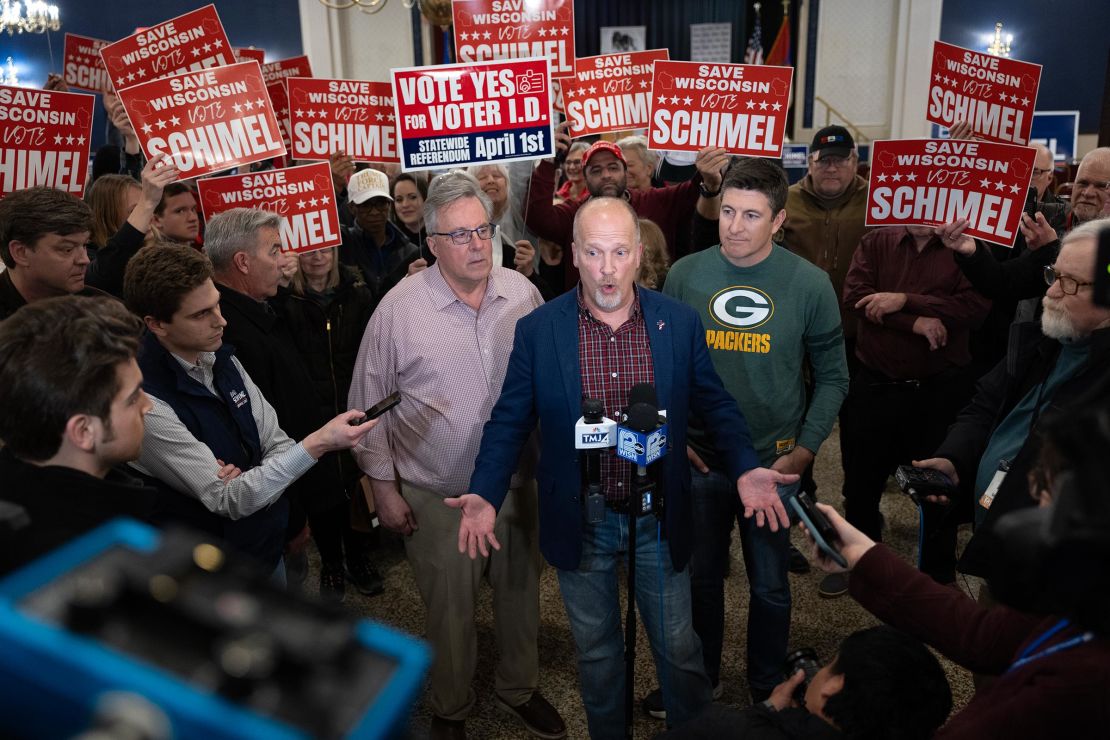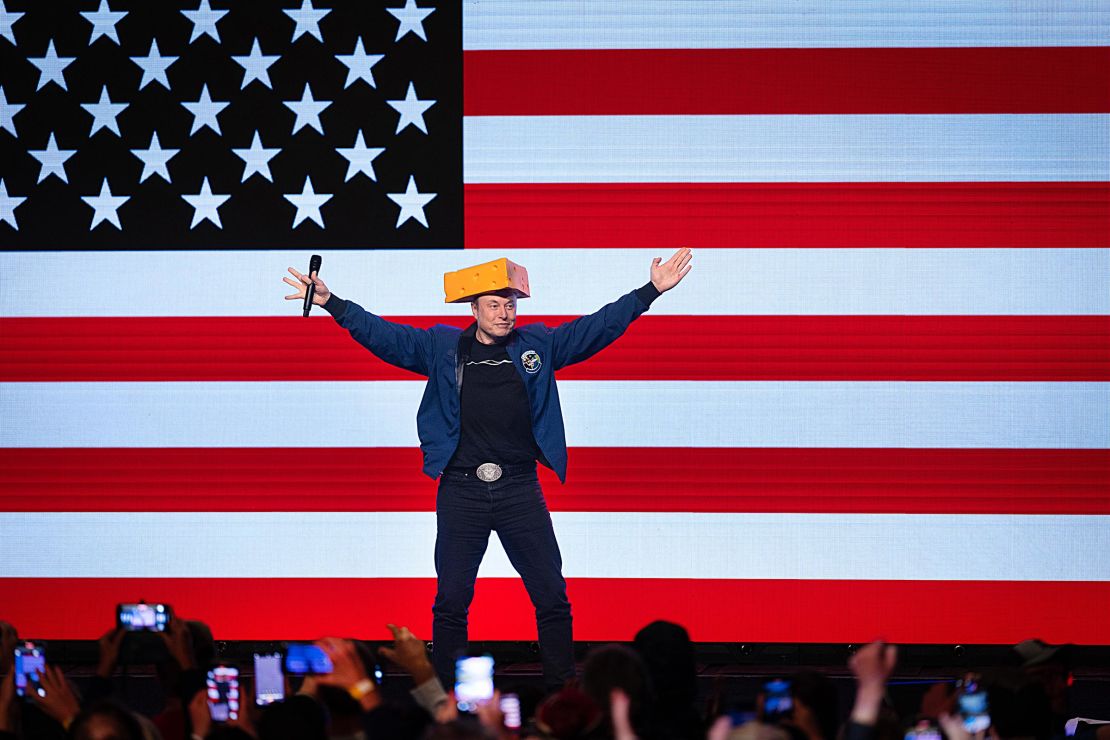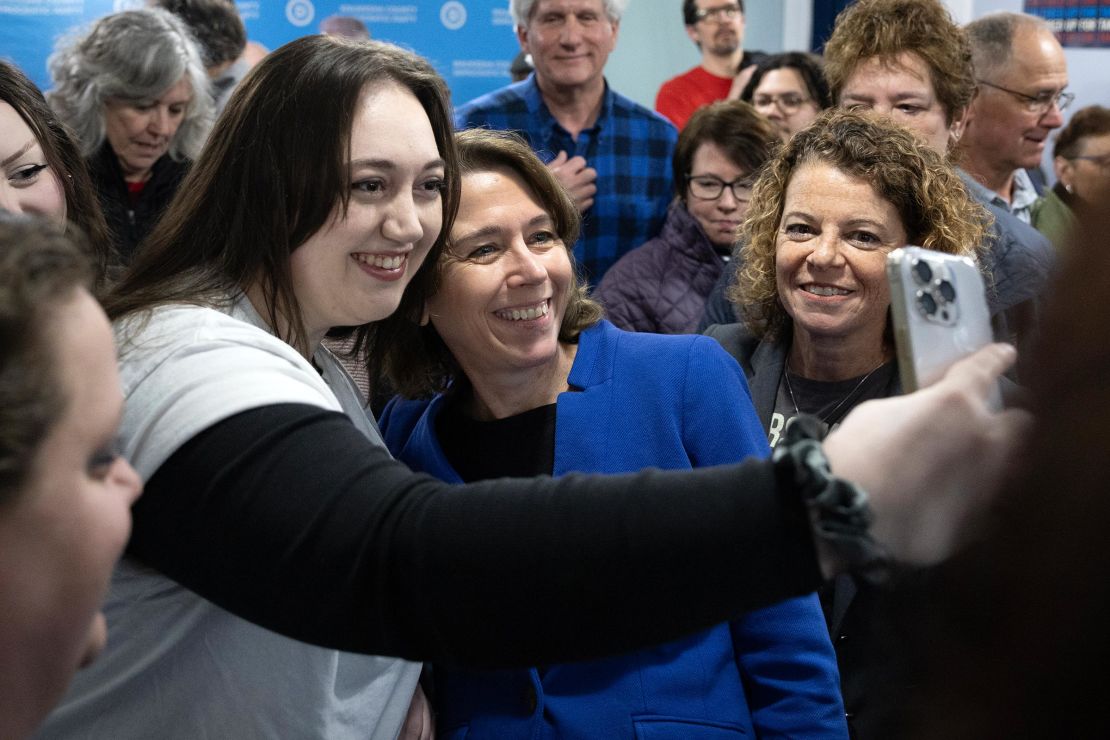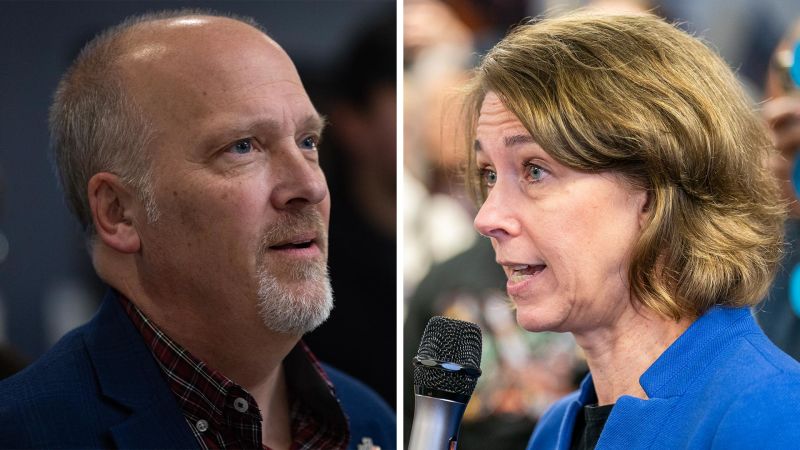CNN
—
Tuesday’s election to fill a Supreme Court seat in Wisconsin has emerged as the country’s first major political battle since President Donald Trump returned to the White House. It offers both an early test of the president’s popularity in a state he narrowly flipped last year and a gauge of the political machine that Trump ally Elon Musk has deployed to drive up turnout in this swing state.
A pair of special elections for two vacant House seats in Florida have garnered considerably less attention. But the outcomes on Tuesday could deliver Republicans some much-needed reinforcements to pad Speaker Mike Johnson’s narrow majority and provide more hints into the mood of voters in a state that has lurched hard to the right over the past decade.
The results in both states could provide Republicans and Democrats with roadmaps for how to run in the second Trump era.
In Wisconsin, the race between the liberal candidate, Susan Crawford, and Brad Schimel, the conservative favored by Trump and Musk, will determine the ideological balance of the high court in a perennial battleground. A Crawford win would help liberals retain a 4-3 majority on the court, while a Schimel victory would flip the court to conservatives.
In a state with divided government — Gov. Tony Evers is a Democrat, while Republicans control the state legislature — the Supreme Court has become the final arbiter of hot-button issues. Battles over the future of abortion, voting rules, the bargaining rights of public sector unions and congressional redistricting all loom over the court.
The battle for the seat has shattered records to become the most expensive judicial race in US history — with more than $90 million already plowed into advertising, canvassing and other expenses, according to a tally by the Brennan Center for Justice at New York University’s law school.
Wisconsin has proved pivotal in US politics as one of a handful of swing states that determine the presidency. The state gave Trump his narrowest margin of victory last year and is poised to serve as a crucial battleground in the 2026 midterms and the 2028 presidential contest — with its high court potentially setting ground rules for voting in those elections.
The Trump factor and turnout
In a coup for Schimel, Trump endorsed him in the final stretch of the campaign — a move Republicans hope will help drive conservatives to the polls for an off-year judicial contest in which Trump is not on the ballot.

Throughout the campaign, Schimel — who served as the state’s attorney general between 2015 and 2019 — sought to bind himself closely to the president’s brand, even dressing as Trump for Halloween last year. Schimel weaved the president’s endorsement into his speeches in the final week on the campaign trail, and the campaign churned out ads touting his support.
The race is technically nonpartisan, but both parties are heavily invested in the contest, with some of the nation’s most recognizable political figures trekking to Wisconsin in recent weeks.
They include Vermont Sen. Bernie Sanders, the progressive who caucuses with Democrats in the Senate, and Minnesota Gov. Tim Walz, the Democrats’ 2024 vice presidential nominee. Former President Barack Obama, who remains a popular figure in the Democratic party, posted on social media encouraging Wisconsin voters to support Crawford as early voting was underway.
Donald Trump Jr. and Turning Point USA founder Charlie Kirk are among the Republicans who have stumped for Schimel.
Both campaigns promoted early voting, which outpaced absentee voting in the last state Supreme Court race in 2023. The number of absentee ballots cast through Sunday jumped 57% from the same period in 2023, according to Wisconsin Elections Commission data published on Monday.
Groups aligned with Musk, who spent nearly $300 million to help elect Trump and Republicans in Congress last year, have spent more than $19 million in Wisconsin, making the Tesla CEO one of the biggest outside players in the race. Musk also contributed $3 million personally to the state’s Republican Party in an effort to shape the outcome.
And the billionaire’s political operation dialed up its activity in the final days before the election — delivering $1 million checks over the weekend to two Wisconsin voters who won a sweepstakes because they shared their contact information with his America PAC by signing a petition. It echoes a tactic Musk used in the 2024 election to secure voter information as he promoted Trump’s candidacy in swing states.

Musk’s PAC also is offering $20 for every instance of a “block captain” submitting a picture of a Wisconsin resident they recruited to hold an image of Schimel in one hand and flash a thumbs-up with the other.
The election sets up an enthusiasm test for Democrats, who are looking to rebuild after bruising losses in the 2024 election. The outcome “will show everyone in American politics whether Democrats have found their fighting spirit,” Ben Wikler, the Wisconsin Democratic Party chairman, told CNN earlier this year.
For their part, Democrats sought to make the race a referendum on Musk, with Crawford arguing during a recent candidate debate that the tech billionaire had “basically taken over” her opponent’s campaign. Musk is also the subject of critical ads from Crawford and the Democratic Party.
“I don’t think this comes down to, you know, red or blue or Democrat or Republican. I think all voters in Wisconsin should be concerned about this, about somebody coming in and trying to buy a seat on the Wisconsin Supreme Court,” Crawford said in an interview with CNN. “Somebody who clearly is trying to have access to and influence over the Wisconsin Judiciary as Elon Musk is.”
But other uber-wealthy individuals also have sought to shape the outcome, including packaging magnate Liz Uihlein and Chicago Cubs co-owner J. Joe Ricketts. They donated to the state Republican Party, which backs Schimel.
Big Democratic donors include financier George Soros, LinkedIn co-founder Reid Hoffman and billionaire Illinois Gov. JB Pritzker.
Schimel, who argues Musk-aligned groups are working independently of his campaign, has decried big money coming from Democrats. “I hope that they also think George Soros and JB Pritzker and others (should) stay out,” Schimel told CNN when asked about voters who think Musk should stay out of the race.
Abortion, workers’ rights and more
One of the biggest issues before Wisconsin’s high court centers on the future of abortion in the state and whether an 1849 state law banning it in most cases can be enforced.
Crawford, who has represented Planned Parenthood as a private attorney, backs abortion rights. Schimel has a record of opposing abortion but has said he will respect the will of Wisconsinites.

The current court is expected to issue rulings on pending abortion matters before the winner of this election joins the court in August, but that might not represent the final action from the justices should conservatives win control.
The court also could take up congressional maps that have helped the GOP hold a lopsided advantage of 6 out of 8 US House seats, despite the razor-thin margins of victory for Republicans and Democrats in statewide races.
The justices also could weigh in on a 2011 state law that stripped collective bargaining rights from public-service employees. A case close to Musk could eventually land before the court: Tesla has sued Wisconsin over a state law that bars carmakers from owning dealerships.
As Trump brought a wave of close Florida allies to Washington to build out his government, he exacerbated Johnson’s leadership challenge by triggering two Republican vacancies in the narrowly divided House. National security adviser Mike Waltz left one opening in eastern Florida, and ex-Rep. Matt Gaetz created another in the Panhandle when he resigned for his brief, unsuccessful turn as Trump’s pick for attorney general.
But the speaker could soon gain some breathing room.
Florida’s special elections to replace Gaetz and Waltz in Florida Congressional Districts 1 and 6, respectively, come in districts Trump won by more than 30 points. The Republicans nominated for the seats — outgoing state Chief Financial Officer Jimmy Patronis in the 1st District and outgoing state Sen. Randy Fine in the 6th District – were each backed by the president during the primary.
Given the considerable Republican advantages in both districts, the races have largely flown under the radar. But some corners of the GOP have raised concerns that Fine could underwhelm in his bid against Democrat Josh Weil, a teacher who has raised $10 million and went into the final weeks of the race with $1.2 million on hand. Fine had just $92,000 before injecting $400,000 of his own money into the race.
Former Trump adviser and MAGA strategist Steve Bannon has warned that Fine could be down heading into Tuesday, and Florida Gov. Ron DeSantis said he expected the Republican nominee to underperform in the district.
But the minimal Democratic investment in the race suggests an upset would still come as a surprise to the party. Similarly, a $2,000 contribution last Saturday from House Minority Leader Hakeem Jeffries to Gay Valimont, the Democrat challenging Patronis, is unlikely to move the needle in a deeply conservative part of the state.
As it is, Democrats may be looking for silver linings in the outcomes come Tuesday night. Any evidence of early voter dissatisfaction with Trump could inject the party with some much-needed optimism in Florida heading into the midterms, when the state will elect a new governor and decide on a full-time replacement in the Senate for Secretary of State Marco Rubio.
CNN’s David Wright contributed to this report.

